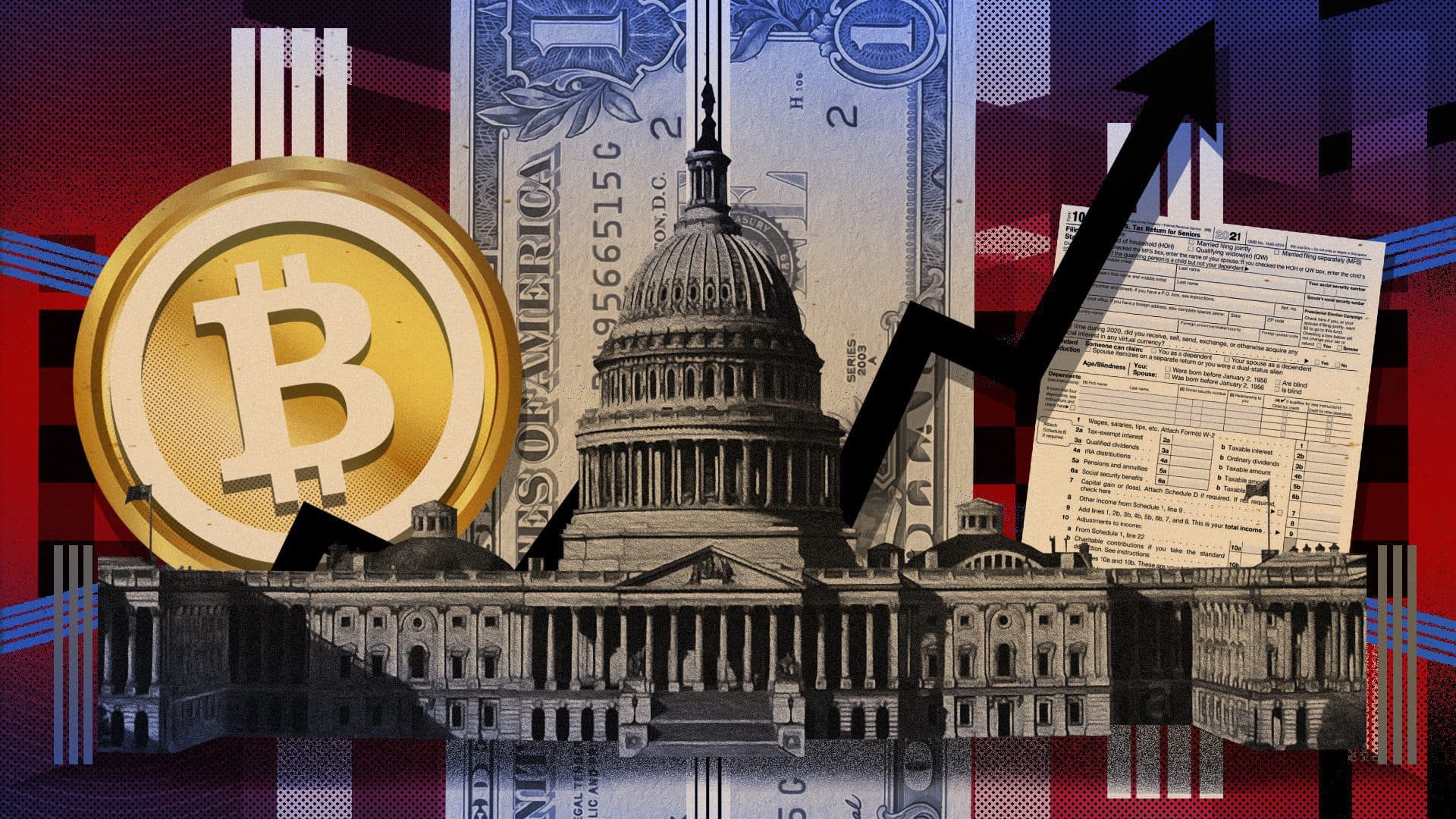Fate of ‘Millions of Taxpayers’ Hangs in Balance of IRS Crypto Staking Case
Four US representatives in 2020 wrote to the IRS in a bid for clarity around tax payments for crypto staking

Blockworks exclusive art by BY AXEL RANGEL
- After the IRS offered to refund a Nashville couple for taxes paid on unredeemed rewards from staking on the Tezos blockchain, industry experts weigh in about a potential new tax precedent
- The couple has refused the refund, hoping that moving forward with the case will help to establish a precedent for taxing staked tokens
A Nashville couple declined a reimbursement from the US Internal Revenue Service (IRS) on taxes paid on rewards gained — but not redeemed — from staking on the Tezos blockchain.
The plaintiffs, Josh and Jessica Jarrett, were offered the refund in December 2021, stemming from their 2019 staking activities, according to a Thursday morning court filing. Blockworks originally reported on the litigation’s outcome Wednesday.
Eighteen months in, Josh Jarrett said in a statement, it appeared the government “didn’t want to defend the position” that tokens the company created through staking were taxable income. The case has been closely watched by cryptocurrency executives as one of the first lawsuits in the sector.
“At first glance, this seemed like great news,” Josh Jarrett said. “But until the case receives an official ruling from a court, there will be nothing to prevent the IRS from challenging me again on this issue. I need a better answer.”
Industry group Proof of Stake Alliance (POSA), a partial funder of the lawsuit, said that in turning down the reimbursement, the Jarretts have set the stage for a wide-sweeping legal precedent.
“POSA, and the broad coalition it represents, applauds Jarrett’s decision to continue his lawsuit,” POSA said in a statement. “He has rejected the IRS’s offer of a refund, opening up the possibility of a court ruling that will give him, and millions of other taxpayers in the same position, the ability to confidently plan for the future.”
POSA has pushed for clearer regulation on the topic since 2019 and has briefed policymakers, the Treasury Department and the IRS about the tax implications of staking rewards, a spokesperson said.
US Reps. David Schweikert (R-Ariz.), Bill Foster (D-Ill.), Tom Emmer (R-Minn.) and Darren Soto (D-Fla.) wrote a letter to the IRS in August 2020 requesting guidance on the taxation of “block rewards” in a proof-of-stake network.
“We hope to have additional productive conversations with the key federal stakeholders and policymakers on the issue in the future,” the POSA representative told Blockworks. “POSA’s position is that staking rewards are not taxable until sold.”
A bench trial is set for March 2023, unless the case is settled after discovery in mid-March. A settlement offer is not the same as a binding precedent, according to tax and public policy experts.
A trial may help establish a precedent for taxes involved with staking digital assets, advocates hope, but tax experts insist there is a long way to go.
“It’s a step in the right direction, but, until the court ruling is out, hard to rely upon,” said Shehan Chandrasekera, CPA and head of tax at Coin Tracker. “I can also see some people starting to amend their previous tax returns with staking income.”
Accounting firms are already adjusting their reporting options for clients. Ledgible, a cryptocurrency tax and accounting software that works with both retail and institutional clients, will now give clients the option to skip staking rewards on their taxable incomes tallies.
“The taxpayer’s decision not to accept the refund will force the IRS to take a more concrete position,” Ledgible CEO Kell Canty told Blockworks. “In the meantime, staking rewards reporting will need to be flexible as this evolves, which is why we’re adding options into the Ledgible Tax Platform to treat staking rewards in a manner according to this case, if the user chooses.”
Staking popularity grew in 2021
The stakes aren’t small — annualized staking rewards increased 939% to $14.7 billion in 2021, according to data from cryptocurrency exchange Kraken.
Proof-of-stake assets accounted for five of the top 10 crypto assets by market capitalization and 25 of the top 100 at the end of last year, the report says. Such assets totaled 31% of the total crypto market cap, a year-over-year increase of 127%.
Tim Ogilvie, product director and head of Kraken’s staking division, said he expects the continued growth of smart contract activity on Ethereum, alternate platforms and rising layer-2 solutions to keep staking’s momentum going.
“There’s a narrative that Solana, Avalanche [and others] are ‘Ethereum killers,’” he said. “But the real story is that the overall pie is getting much larger, and you’ll have lots of winners.”
Get the news in your inbox. Explore Blockworks newsletters:
- The Breakdown: Decoding crypto and the markets. Daily.
- 0xResearch: Alpha in your inbox. Think like an analyst.






